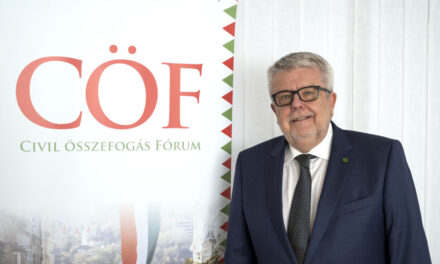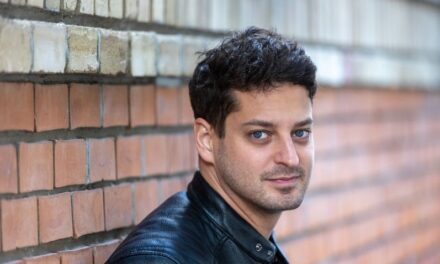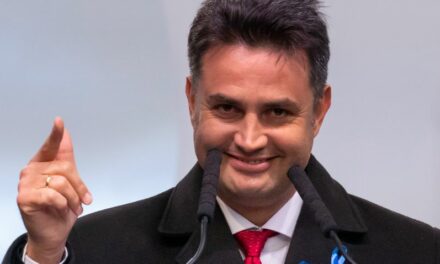Not only in political, but also in economic matters, Hungary applies a double standard to Brussels, as well as the international media colluding with it. This is clear from Dalibor Rohac's previous video statement, the man investigated the processes of Central and Eastern Europe and the Union as a staff member of the American Enterprise Institute - they wrote in the Magyar Nemzet article.
At one point in the conversation, the author of the interview, who cannot be identified for us, asked the researcher if
Hungary would not be led by Viktor Orbán as prime minister, but he would take the same measures as the current prime minister, what kind of attitude could he expect from the European press and politics.
The media elites and European institutions tend to grant the presumption of innocence to actors they consider to be their own people, for example in situations when Orbán is denied this - Rohac began his answer, then cited former Slovak Prime Minister Robert Fico as an example.
"The government led by Fico, nominally a social democrat, was quite corrupt, but Fico was still considered their man, as he sat in the faction of the European Socialists"
- stated the researcher, and later added: Fico did not have to face such unfavorable reactions from Brussels as Viktor Orbán.
"In my opinion, if Orbán were to be replaced and the socialists were once again in power in Hungary, there would be a lot of relief in Brussels"
Rohac thought, and also explained why he thinks so.
"Let's not forget that in 2010 the socialists fell into corruption scandals and the division of Hungary did not start with Orbán either"
he revived. Rohac certainly hinted that although Brussels regularly attacks and punishes the current Hungarian government for corruption, the EU committee is not interested in the perceived or real extent of abuses.
Rohac then clarified the aspects of Brussels.
"I don't think, for example, that the Hungarian socialists would try to present themselves as determined opponents of European migration"
- said the researcher, and then talked about how, in his opinion, the domestic left would engage less in discussions about the situation of Europe as a whole, such as the discourse on migration, multiculturalism, or liberalism. - And with this - Rohac opined - he could buy himself much more freedom of movement in Brussels, as Bulgaria and Romania did.
At this point, the researcher pulled the lid off the Brussels double standard. He put it this way: " Bulgaria and Romania are more dysfunctional and corrupt than Hungary and are in a worse state overall. But from the point of view of the European institutions, they are easier to handle in the sense that they do not veto European initiatives. That's why they receive enough money from the structural fund, and even if they steal from it or other abuses occur, these countries still broadly do what the EU expects of them. "
Rohác's interlocutor did not leave the astonishing statement in the air and asked:
"So you are saying that those countries that meet the EU's expectations are not treated negatively, while those Hungarian or Polish leaders who strive for more independence are?"
"Yes, this is also one side of the operation of real politics," answered the researcher, finally explaining: it would be good if Brussels held the same standards to account in all member states, but the examples of Hungary and Poland show that in reality this is not the case.
In another part of the conversation, Dalibor Rohac showed that, regardless of whether it is ideological or economic issues, Brussels regularly uses double standards in conjunction with the international press and NGOs. An example of this is the relationship with the Russians.
"Bulgaria is currently closest to Russia, and it is known that many states, including the Czech Republic and Austria, cooperate with the Russians, yet the media criticizes Hungary the most"
- said the researcher in the video interview. He added: “Germany also has its own history with Russia. It is enough to mention Nord Stream 2 and one of the former chancellors, who is on the board of a Russian state company." With this comment, Rohac was referring to former chancellor Gerhard Schröder, who after the end of his term of office was transferred to a Russian-majority company managing the construction of the Nord Stream pipeline, which will transport Russian gas directly to Germany. According to the latest news, Schröder may even get a leading position in the Russian state energy giant, Gazporm.
But let's get back to the video interview! After this, the researcher named the phenomenon as follows:
"We can say that there is a kind of double standard in the way these things are reported".
He then continued: "Although it can be criticized that the Hungarian government makes gestures and concessions to the Russians, other governments do the same, for example the Italians or the Germans, and these cases should also be criticized in the same way." Finally, he opined: "Hungary does stand out a little from the mentioned field, but how could it be completely in Putin's pocket?" Of course not."
By the way, Dalibor Rohac's opinion exactly coincides with that of one of the former directors of the Soros foundations: Andrej Nosko spoke in a video interview, also published by Magyar Nemzet, that
if the Hungarian prime minister were a socialist, the media and the European Union would react differently.
Nosko also cited the Western perception of Slovakia and Romania as an example of the often painfully obvious double standard. But the former head of the Soros foundations also spoke about how the foreign media's coverage of Hungary and Poland is distorted, biased and superficial. For this reason, according to him, in the international public, the two countries can be whipped without listing real arguments.
The other day, our paper published details from another Skype interview, which is also part of the voluminous set of documents that came to our editorial office by e-mail. In this recording, Mátyás Kálmán, a former employee of 24.hu and Index, announced that
the various NGOs manipulate or even bribe the journalists reporting on Hungary, who in many cases write about the events in our country in a highly distorted manner.
According to Mátyás Kálmán, it is not good that the employees of the press depend on NGOs to such an extent, and he believed that it is difficult to operate transparently in such circumstances. He also mentioned Amnesty International, a human rights organization financed by György Soros, among the NGOs that would bring journalists under their control as much as possible.
Source: hirado.hu
Photo: Francois Walschaerts/AFP via Getty Images











